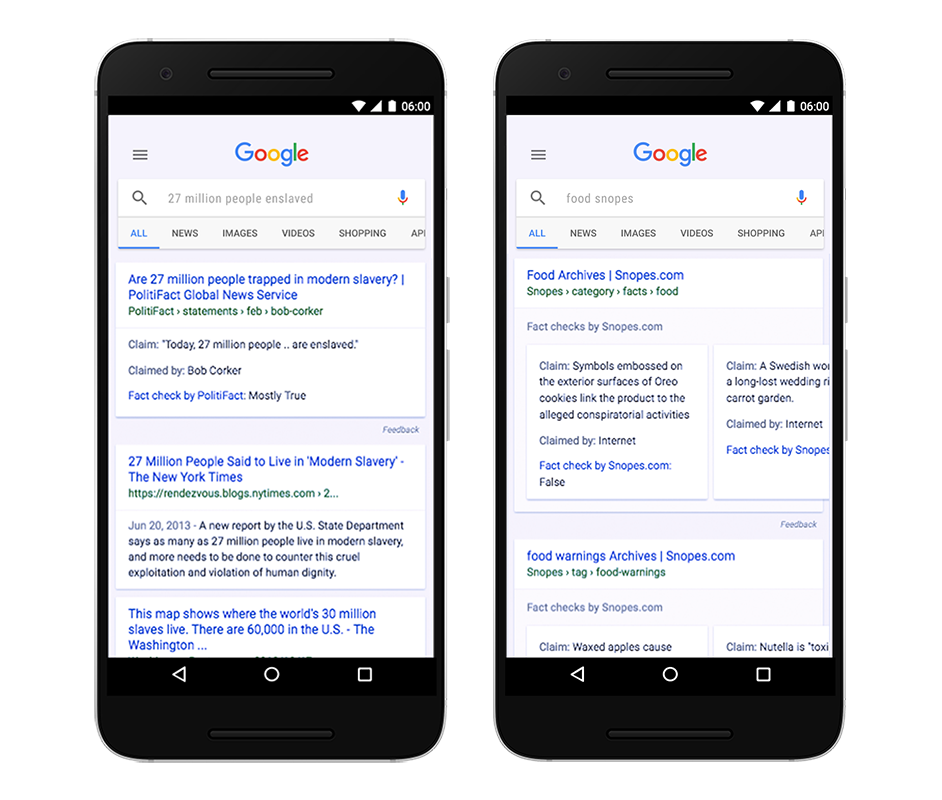Google rolls out fact check feature in search

The Internet is both a place of wonder, and a place of terror. It is a place where people can and do have access to an unimaginable amount of information, from all kinds of different sources. Every single advantage of the Internet is countered by a disadvantage, and this is something that many seem to forget now that the Internet is practically ubiquitous.
One issue that has been a major point of discussion and controversy over the past few months is that of “fake news”. Though this issue mostly resolves around a continuous fight between the left and right sides of political ideologies, it is evident in other areas as well.
Major tech companies usually keep out of political debates, and for good reason. Facebook, for instance, has attempted to remain entirely neutral. Though it can certainly recognized that fake news do exist and have been spread through the network, it does not recognize the issue as its own responsibility because it does not recognize itself as a news platform, regardless of whether or not it actually is one.
Google has also attempted to remain mostly neutral but has proven to be quite challenging. The company’s search engine is, after all, synonymous with browsing the Internet for many people. As such, many have directly accused Google of failing to halt the spread of fake or misleading content, despite some recent efforts to do so.
Back in October, the Internet giant tested a fact-checking feature that would allow users to quickly ascertain whether presented information was factual or not. Now, the company is rolling out the feature globally in all of its search results.
Searching for specific queries, such as “27 million people enslaved” will show you a fact check at the very top of the search results, when one is available. However, you must type very specific queries in the form of statements, not questions, as this feature is supposed to be fact-checking propagated claims.
The entire process will be automatic. First, the feature will scour certain websites which must be using the Schema.org ClaimReview markup in the fact-checking pages or the “Share the Facts” widget. Google’s algorithms will then determine whether a publisher is an “authoritative source of information” in order to qualify them for inclusion.
Finally, the algorithms will perform a number of additional checks, such as the content’s adherence to Google News Publisher criteria for fact checks, as well as the “standards for accountability and transparency”. Google, of course, retains the right to ignore a site’s markup if it does not meet the company’s standards or policies.
In theory, this is a good first step towards making fact-checking an easier process for everyone. In practice, there is no single entity without some form of bias, and people are far too easy to trust anything as fact.
I expect the feature to roll off in a rocky start but improve with age. Hopefully, the fact-checking feature will serve as a reminder for people to do their own search and reduce the spread of misinformation.



